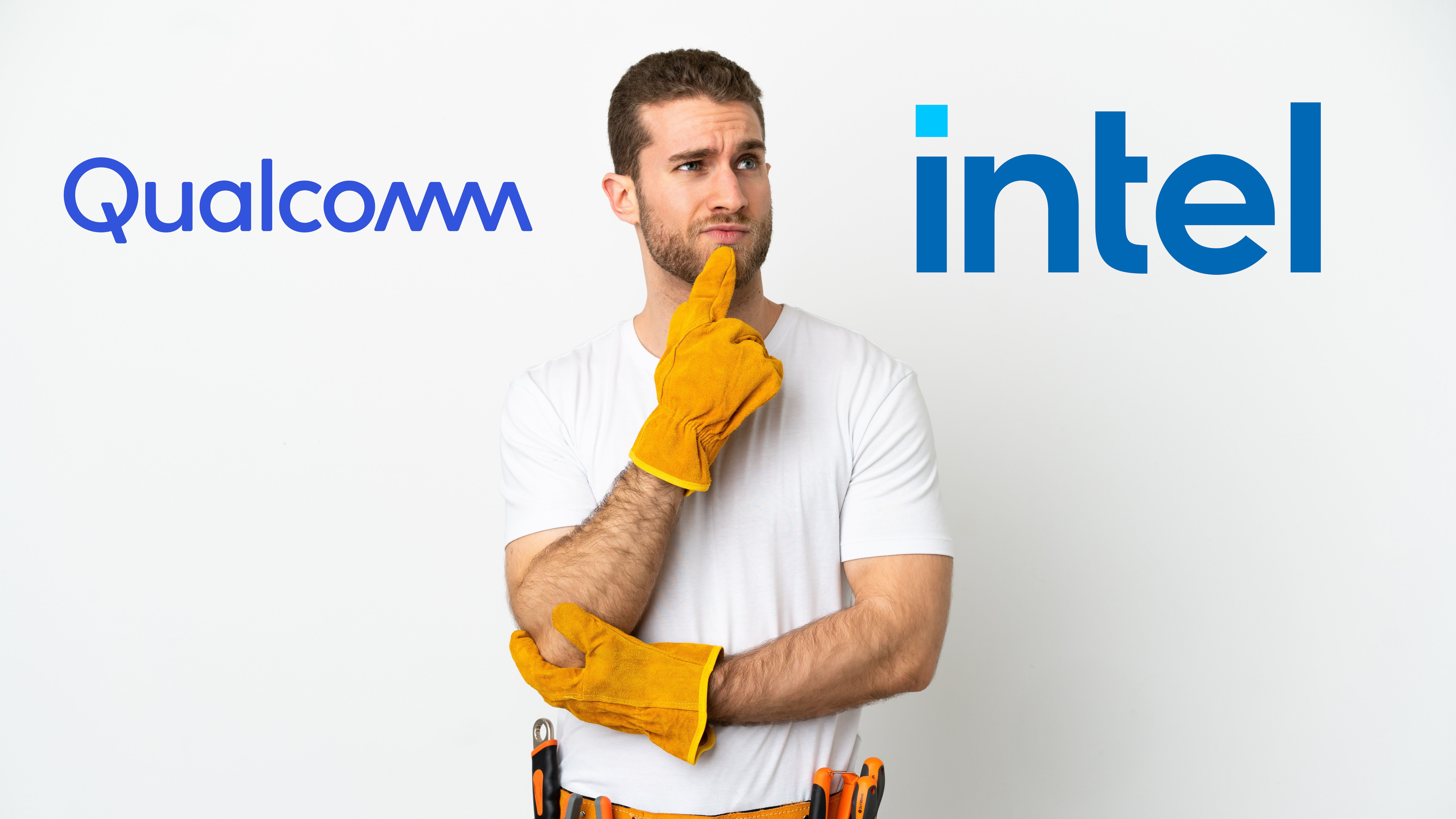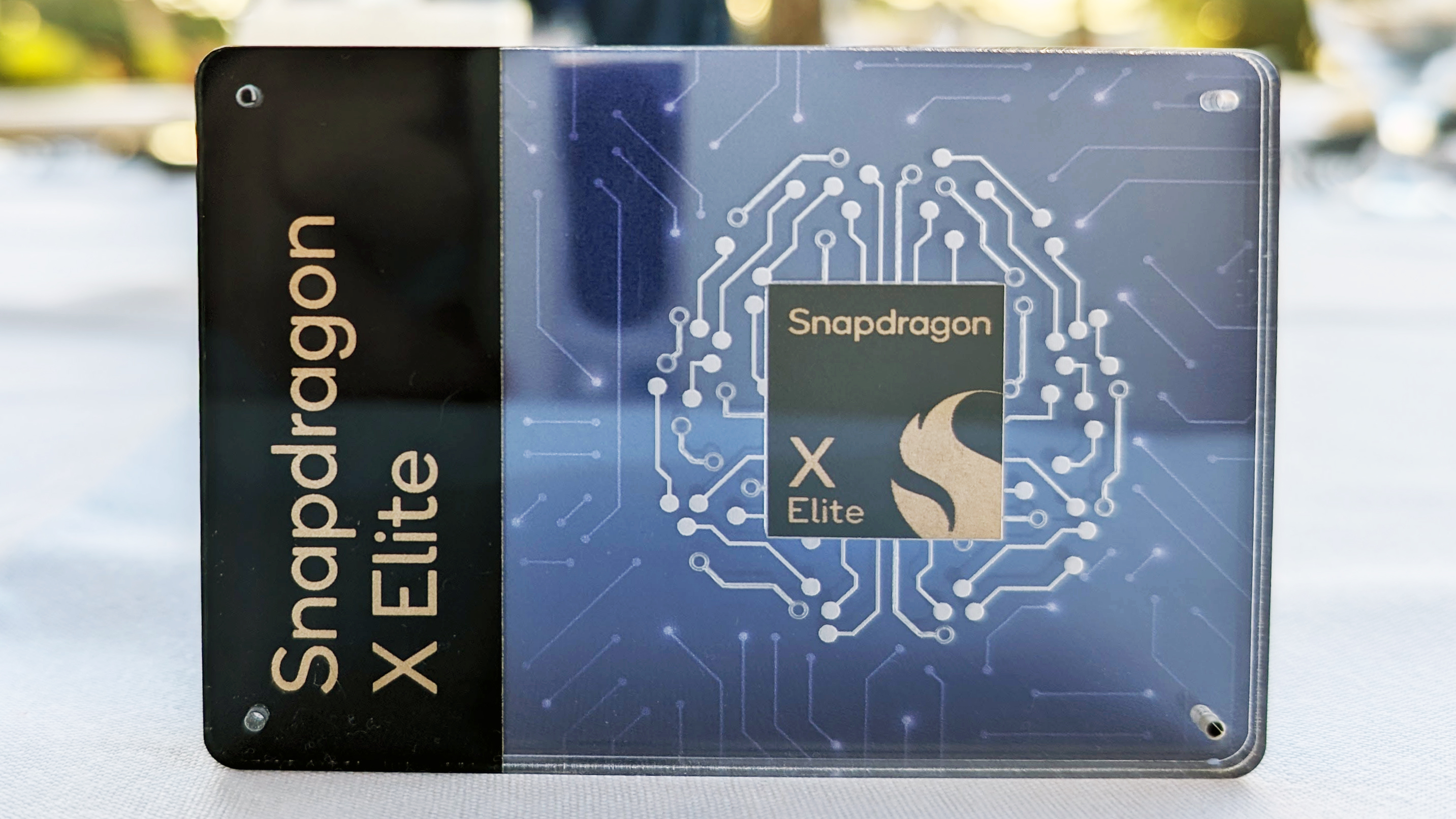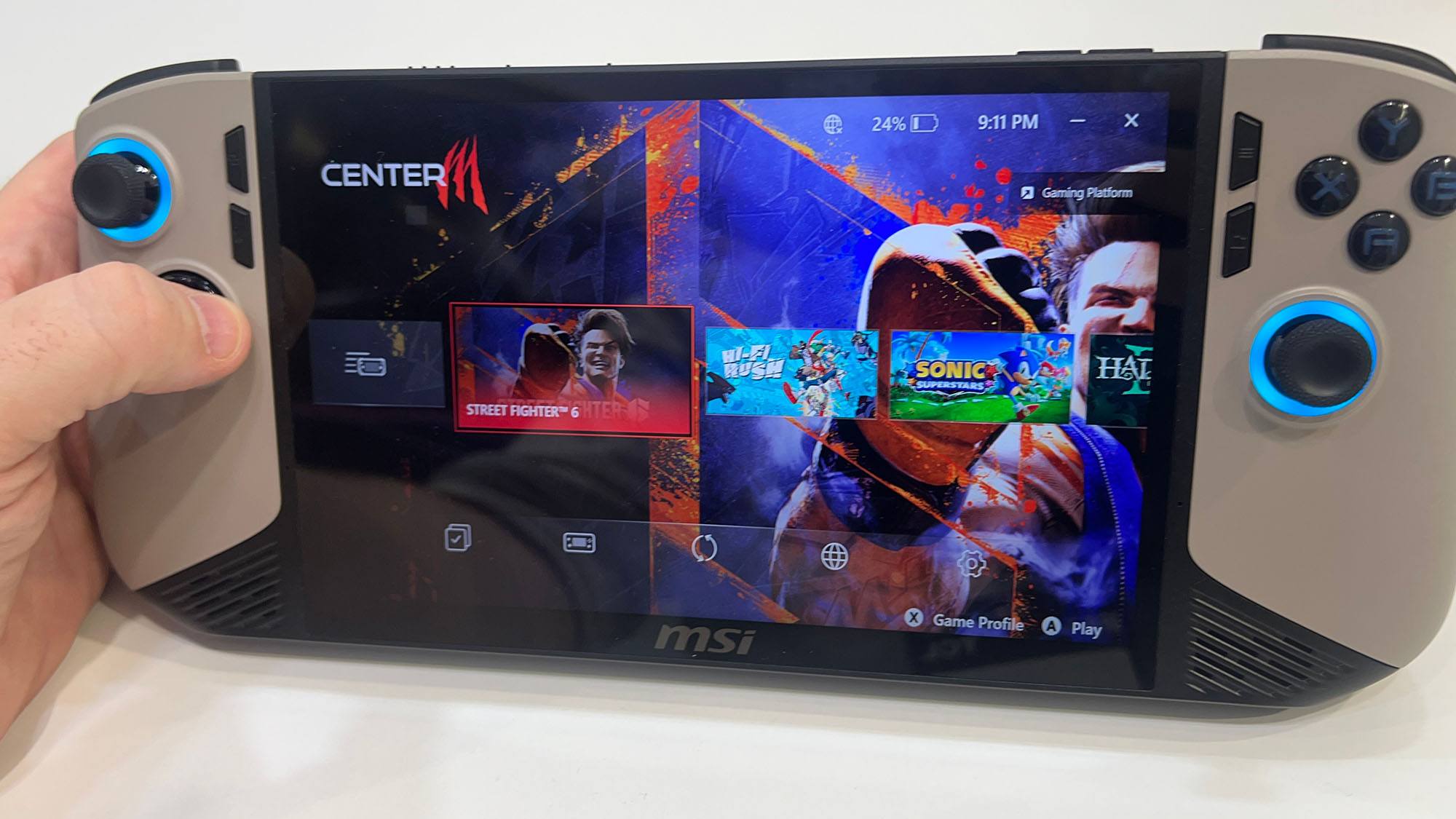
Is Qualcomm buying Intel? I saw this question plastered over X (cough, Twitter) today, and it got me thinking: what sort of upside-down world are these people living in? Indeed, even some actual news outlets have posted headlines posing the same question, and I’m here to set the record straight.
No, Qualcomm certainly isn’t buying Intel, and won’t be anytime soon. Despite its recent victories with the new Snapdragon X Elite chip, Qualcomm has not approached Intel with any sort of acquisition plan, and Intel itself still appears to be fully committed to its processor business – especially with how impressive its upcoming Lunar Lake chips look.
It’s been a bit of a wild week in terms of computing industry news: AMD revealed that it’s abandoning the flagship gaming GPU and we got our first glimpse of Apple Intelligence at the ‘Glowtime’ event, but it won’t be coming to iPhones or Macs for a little while yet. Among this, Reuters published a report claiming that Qualcomm has “examined acquiring different pieces of Intel”.
Now, that Reuters article contains the phrase ‘sources say’ multiple times in just the first few lines, and Qualcomm itself has refused to comment, so take all of this with a pinch of salt. But to break it down, all we really know is that Intel might be looking to shed some unprofitable parts of its business as it faces some financial turmoil, and Qualcomm might have been interested in buying those business units.
A new fighter enters the ring
There’s no denying that Qualcomm is riding high right now. I personally reported from Computex 2024 in Taipei earlier this year that Qualcomm was the clear winner of the event, with a rousing keynote address that features guest appearances from multiple laptop manufacturer executives, all throwing their collective hats into the Snapdragon ring.

It’s also no secret that Intel has been struggling a bit as of late; the massive upheaval caused by Snapdragon X Elite’s arrival has shaken up the entire laptop market, an area where Intel has historically dominated. AMD continues to offer fierce competition in other arenas, bringing its powerful systems-on-a-chip to handheld PCs like the Asus ROG Ally X, while the competing Intel-equipped MSI Claw A1M was just… whelming.
Investors also appear to be unhappy with Intel’s recent performance. The processor giant’s market capitalization dropped to $80 billion this week, the lowest it has been in over a decade. Meanwhile, Qualcomm’s market cap sits at $176bn at the time of writing, while long-time competitor AMD sits pretty at $224bn and big dog Nvidia’s AI investments have seen massive returns, bringing them up to a staggering 2.62 trillion dollars.
Never bet against Intel
I have to say, though… I’m not worried. Even if Qualcomm does end up buying out some of Intel’s business ventures – perhaps its client PC design business, as suggested by Reuters’ sources – there’s plenty of potential for Team Blue to bounce back.
With a confirmed release date of September 24 for the new Lunar Lake CPUs as well as a slew of laptops that will come bearing those chips (plus a swiftly-rebooted MSI Claw 8 AI+), Intel is due a resurgence. We’ve also got Intel’s second-gen Arc ‘Battlemage’ discrete GPUs on the horizon, which could be a welcome addition to the affordable graphics card market even if the first-gen Arc cards failed to make a huge splash.

Besides, (without wanting to get political here) Intel isn’t going to go under, because the US Military needs it too much. The chipmaker has numerous long-running contracts and agreements with both the Department of Defense and the Department of Energy, so odds are a government-assisted bailout will occur if those straits begin to look a little too dire. So if you're a Team Blue fanboy, have no fear: even the military-industrial complex has your back.
You might also like...
- LG Gram 16 Pro is revealed at IFA 2024 with an Intel Lunar Lake CPU that should breeze through AI tasks
- Intel has reportedly canceled Beast Lake and its follow-up – and I’m gutted it’s killed off my dream gaming CPU
- Intel Panther Lake laptop chips could get top-end CPUs to rival AMD Strix Halo – and they could change budget gaming laptops forever







